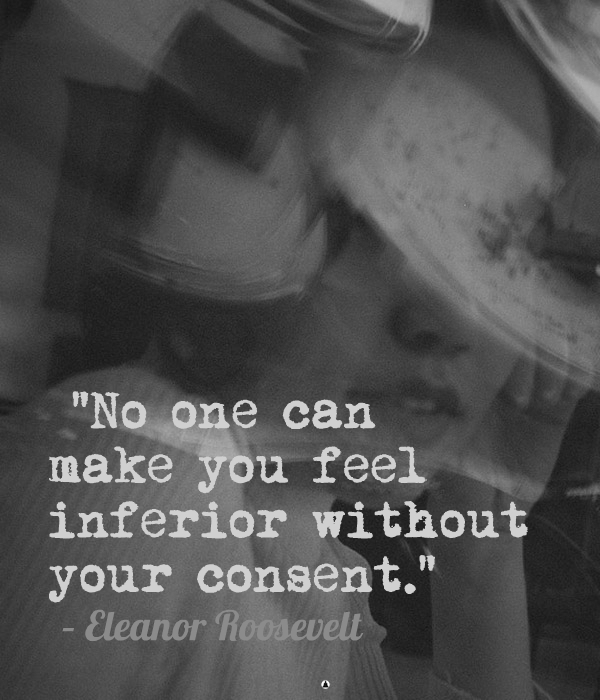Join Our Newsletter
Subscribe with your email to receive the latest news, updates, and exclusive offers.
I’m guessing that when someone mentions the word anxiety, the first thing that pops up in your mind is a person with a worried face who is nervous or looks pretty afraid. Yet, you should know that there’s another type of anxiety that is difficult to spot – the high functioning anxiety.
Both introverts and extroverts can struggle with anxiety, but still, this condition is more common for the introverts. And while we all know the typical symptoms of anxiety, the characteristics of the person who struggles with high-functioning anxiety are the opposite of what you’d expect from an anxious person.
You’ll never see them nervously shivering or panicking. In fact, on the outside, they appear to have it all together and they may even lead a successful life. But, on the inside, they’re driven by nervousness and fear.
Although high-functioning anxiety is not an official diagnosis, it plays an important role in the life of the person who has it. It affects their feelings and behavior. And sometimes, they don’t even realize that they have it themselves.
So, how do you know that you’re an introvert with high-functioning anxiety? Well, following are 15 signs of this kind of people, and the more signs you identify with, the more likely you’re one of them.
Here they are:
1. You perceive the world differently from others.
Researchers from the Weizmann Institute of Science in Israel carried out a study and found out that people with high-functioning anxiety see the world in a different way from others. They’re less able to differentiate between a neutral “safe” stimulus and one that was previously associated with a threat. This means that they over-generalize emotional experiences.
2. You look successful on the outside.
Outwardly, you’re the embodiment of success. You have a great career and you’re relentless in the pursuit of your goals. But, somehow you’re never satisfied with it. You always think you should be doing more.

3. You feel exhausted all the time.
Dealing with anxious thoughts on a daily basis is undeniably exhausting. Your high-functioning anxiety is a drain on your energy. It makes your mind constantly racing, and as a result you often have trouble falling or staying asleep.
4. You’re always prepared.
You’re always prepared to handle even the worst situation because you’ve planed everything in detail. You always have a backup plan in case things go wrong. People like being around you because they find you organized and reliable, but not many of them know that this characteristic of yours is a result from your anxiety.
5. You constantly feel the need to stay busy.
You constantly feel the need to be doing something in an effort to suppress your anxiety and have more control over your emotions and actions. This doesn’t mean that you’re getting more socially active, but you make sure you always fulfill your responsibilities on time. You don’t like putting things off until later and falling behind schedule.
6. You avoid leaving your comfort zone.
You avoid doing things that create intense emotional discomfort, trigger your anxiety and make you feel overwhelmed, such as social events, travelling, or confrontation. You try to stay in your comfort zone and stick to routines and experiences that are familiar to you.
7. You look calm on the outside.
You may be going nuts on the inside, but you’re stoic and calm on the outside. You never show how nervous or angry you feel. You’ve perfected hiding your emotions, especially the negative ones, such as anger, stress, and frustration.

8. You do a lot of negative self-talk.
You frequently reflect on your past mistakes and failures and your mind is often busy creating negative “what if” scenarios. You tend to criticize yourself for your flaws and dwell on your problems and things that you can’ t control, such as other people’s opinions of you.
9. Your anxiety might manifest physically.
Your anxiety might show physical symptoms. You may experience frequent muscle tension, sweating, headaches, rapid breathing, chest pains, heart palpitations, upset stomach, or skin rushes. You can also develop repetitive habits, such as nail biting, knuckles cracking, face picking, or foot tapping.
10. You’re a perfectionist.
You think that if you get everything perfectly right, this will ease your worries and help you manage your anxious thoughts. While this can make you productive and bring you good results, it can also make you adopt an “all-or-nothing” attitude.
For example you can think “If I’m not the best employee, then I’m the worst.” You can also have unrealistic expectations of yourself and a fear of not meeting them.
11. You talk nervously.
Although introverts prefer to be quiet and calm, you chatter on and on out of nervousness. Once you start talking, it looks like you can’t stop. This behavior makes you look like an extrovert.
12. You easily get irritated.
You have low levels of stress, which means that even minor and the least serious problems can irritate and stress you out.
13. You fear that you’ll let others down.
You’re so afraid that you may disappoint others that you’d rather take on more than you can chew than say no. You give your best to make those surrounding you happy and content – even if that means sacrificing your own happiness and needs. But, be careful, you can easily become a people – pleaser.
14. You easily startle.
You’re very sensitive to sounds. Even the sound of a slammed door or a police siren are enough to take you aback.
15. You can’t control your anxious reactions.
You can’t just tell yourself to stop having anxious thoughts. They can come when you expect them the least, (but, in fact, they’re always present in your mind). Yet, if you’re willing you can learn how to manage your anxiety and lessen it.
For example, you can try to be more aware of the things that make you feel anxious and avoid doing them. You can also change your habits or your surroundings. And if all this fails, you can always consult a professional therapist.
Image: maximilianmair